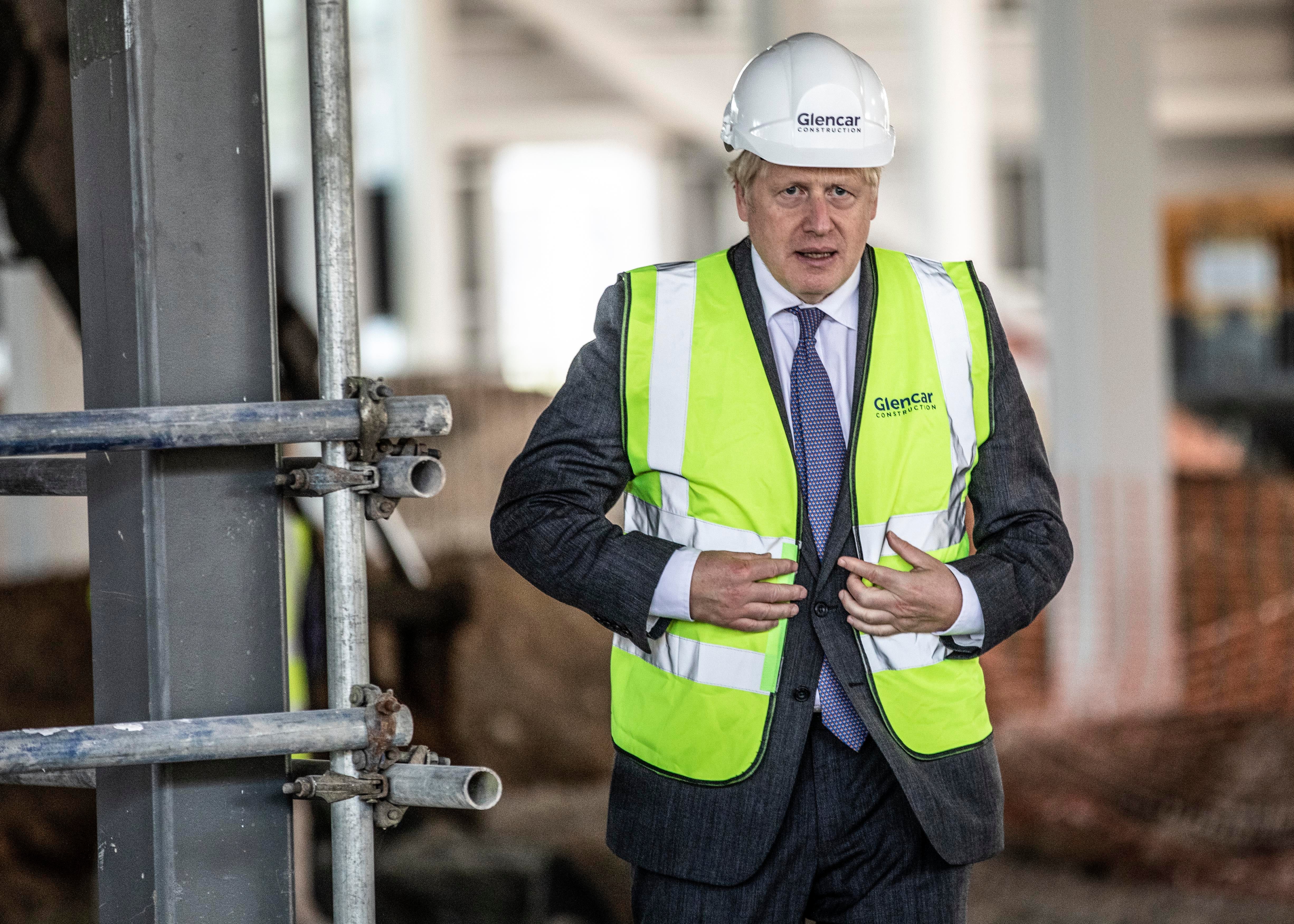Conservative conference: Boris Johnson hopes his ‘levelling up’ agenda will be his legacy
The prime minister wants to use the virtual event to move the agenda on from Covid and Brexit, writes Andrew Woodcock


We will hear a lot at the Conservative conference this week about “levelling up”, as Boris Johnson tries to shift political focus away from the Covid pandemic and on to his domestic agenda.
The slogan was on Mr Johnson’s lips from the moment he became prime minister in July 2019, and was reinstalled at the top of his agenda after December’s general election, when the Tories seized “red wall” seats in the Midlands and north of England from Labour on a promise of jobs, investment and new infrastructure.
For the prime minister, “levelling up” is a way of moving on from the division and rancour of Brexit, which played such a big part in propelling him into power, but which he has largely banished from his rhetoric since the formal date of withdrawal from the EU on 31 January.
In his first speech at 10 Downing Street, he defining levelling up as “unleashing the productive power not just of London and the southeast but of every corner of England, Scotland, Wales and Northern Ireland” by “answering at last the plea of the forgotten people and the left-behind towns” with safer streets, better education, new road and rail infrastructure, full fibre broadband, higher wages and higher productivity.
And chancellor Rishi Sunak waved the starting flag on the process with his March 2020 budget, which unveiled spending pledges worth £18bn next year and promised to raise gross capital investment in infrastructure like roads, rail, housing and broadband to £640bn over the five-year life of this Parliament.
The programme, largely funded by borrowing, marked a sharp shift away from the austerity policies of the Cameron and May years and cast Johnson in the mould of a borrow-to-invest Keynesian far removed from the fiscally parsimonious and debt-averse thinking of Conservative governments over the decades.
However, the shadow of coronavirus was already hanging over these expansionist plans, with Sunak also forced to announce a £12bn package to tackle the pandemic, which was just starting to claim its first victims in the UK.
That figure – remarkable at the time – has since been dwarfed by the £200bn-plus devoted to PPE, ventilators, furloughs, loans and tax breaks as Covid consumed the government’s attentions and pushed levelling up firmly down the political agenda.
Early announcements at the virtual Tory conference have shown that the prime minister wants to refocus public attention on his domestic investment plans in order to provide a chink of light and optimism to counter the gloom of a second Covid wave.
Some £3.7bn was announced for what he refers to as “40 new hospitals” – but which actually includes many renovations or extensions to existing buildings – and a review of transport links between the four nations of the UK was launched, reviving the prospect of his cherished plan to join Northern Ireland to the British mainland by bridge.
But the more investment is announced, the more traditional Conservatives are likely to bridle at adding to a debt mountain that has already topped historical records at more than £2 trillion because of the cost of Covid.
Advocates of investment insist that the UK can afford to add to borrowing while interest rates are at historic lows, and that settling the bills from coronavirus can be put off for decades into the future.
But some Tory MPs fear that putting shovels into the ground now will mean higher tax bills sooner rather than later, despite the party’s election manifesto promise not to hike the rate of income tax, VAT or National Insurance.
And there are signs that the public is yet to be convinced that Mr Johnson’s bold plans will translate into actual improvements to the fabric of their neighbourhoods.
A recent poll found that 67 per cent of people living in northern England and 49 per cent in the Midlands are not confident that the government will deliver on its promise to level up the underperforming areas of the economy where they live.
Meanwhile, any economic boost from the investment risks being wiped out by the pain of job losses and business failures as coronavirus financial support is withdrawn in November and the UK transitions in January to a post-Brexit future which most economists believe will deliver a major hit to GDP, deal or no-deal.
Boris Johnson wants a legacy as the PM who turbocharged all parts of the UK into a prosperous hi-tech sunlit future. In reality, his levelling up programme would have to succeed on a spectacular scale to outweigh the potential economic and human damage from the twin totems of his premiership, Covid and Brexit.



Join our commenting forum
Join thought-provoking conversations, follow other Independent readers and see their replies
0Comments